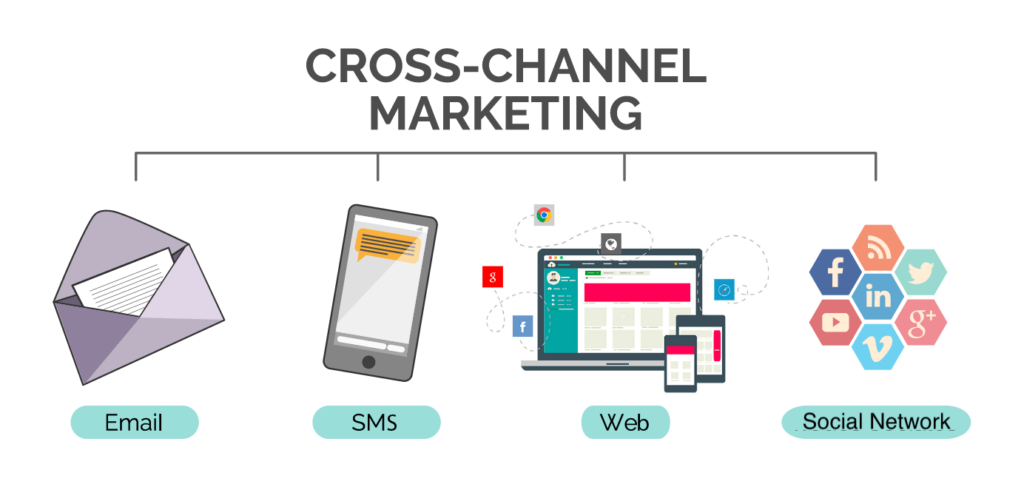Points of this article:
- Data Integration: Integrating fragmented data from various channels is challenging but essential for a cohesive customer view.
- Consistent Messaging: Maintaining a unified brand message across different platforms requires careful planning and coordination.
- Scalable Personalization and Attribution: Personalizing at scale and accurately measuring each channel’s impact demand advanced tools and strategies.
__________________________________________________________________________________________________________
Cross channel marketing is an essential strategy for modern businesses looking to provide a seamless customer experience across multiple platforms. It allows brands to engage with consumers through various channels, such as email, social media, websites, mobile apps, and more, creating a unified journey. However, while cross-channel marketing offers numerous benefits, it also comes with significant challenges. These hurdles can prevent businesses from fully realizing the potential of a well-coordinated marketing strategy.
Challenges of Cross Channel Marketing
Here are some of the key challenges businesses face when implementing cross-channel marketing:
1. Data Integration and Fragmentation
One of the biggest challenges in cross-channel marketing is the integration of data from different platforms. Each channel typically generates its own set of data, which can lead to fragmentation. If these data points are not centralized and properly organized, businesses may struggle to get a holistic view of the customer journey. This makes it difficult to deliver personalized and consistent experiences across all touchpoints. Achieving seamless data integration requires robust tools, such as customer data platforms (CDPs), to collect and unify data from various sources.
2. Ensuring Consistent Messaging
Maintaining consistent messaging across multiple channels is crucial to the success of cross-channel marketing, yet it can be difficult to achieve. Different channels often have unique communication styles and limitations, which can cause the brand message to become fragmented or diluted. Ensuring that every touchpoint conveys a unified message that aligns with brand identity requires careful planning and coordination across marketing teams and tools.
3. Understanding Customer Behavior Across Channels
Consumers interact with brands differently depending on the platform, and understanding how customers move between channels can be challenging. Without a clear understanding of cross-channel behavior, businesses may miss opportunities to engage effectively. Marketers need to track and analyze customer actions across multiple touchpoints to develop a comprehensive understanding of their journey. This requires advanced analytics and tools to capture customer data across all platforms.
Also Read: How to Use Customer Journey Analytics: A Comprehensive Guide
4. Personalization at Scale
Personalizing marketing messages and experiences for individual customers is a key goal of cross-channel marketing. However, doing so across multiple channels and for a large customer base can be a daunting task. The challenge lies in scaling personalization efforts without losing relevance or creating disjointed experiences. Businesses need the right technology, such as automation and artificial intelligence (AI), to effectively deliver personalized experiences at scale.

5. Attribution and Measuring ROI
Determining which channels contribute the most to conversions and customer retention is often difficult in cross-channel marketing. With multiple touchpoints involved in the customer journey, attributing success to specific channels can be complex. Understanding the impact of each channel on the overall campaign and measuring return on investment (ROI) requires advanced attribution models, which can be time-consuming and difficult to implement without the right tools.
6. Channel-Specific Expertise
Each marketing channel has its own nuances, best practices, and requirements. A successful cross-channel strategy demands expertise in every platform, from social media to email and mobile apps. Businesses often struggle to find the resources or knowledge needed to optimize each channel individually, leading to inefficiencies in the overall strategy.
Conclusion
While cross-channel marketing offers many advantages in terms of customer engagement and brand consistency, businesses must navigate several challenges to succeed. These include integrating fragmented data, ensuring consistent messaging, understanding customer behavior, personalizing at scale, and accurately measuring ROI. With the right tools and strategies, however, these challenges can be overcome. ProPS provides businesses with the solutions needed to tackle these hurdles, offering robust data integration, advanced personalization, and optimization capabilities to ensure your cross-channel marketing efforts lead to success.
